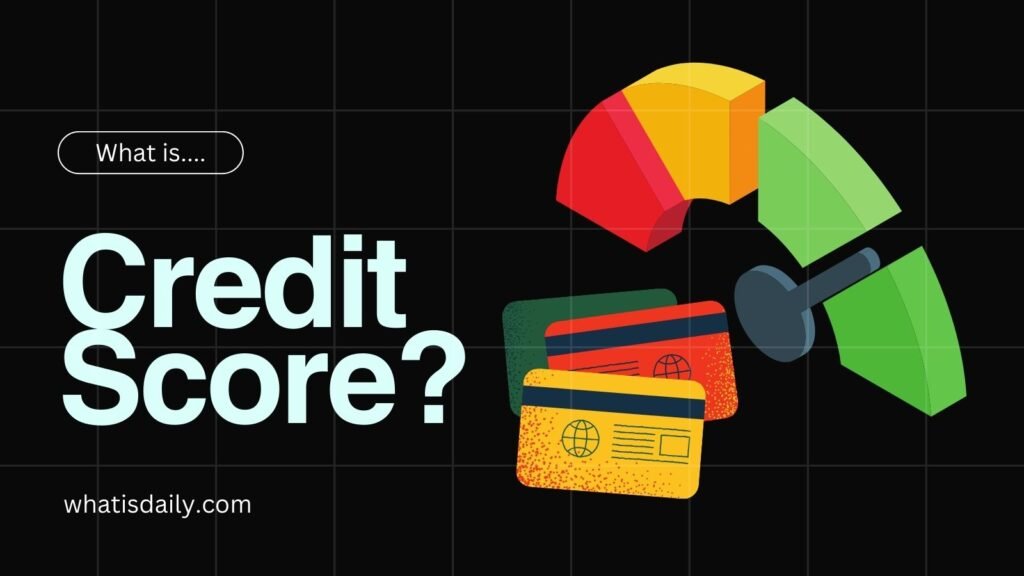A credit score is a number that represents how trustworthy you are when it comes to borrowing money, but in reality, it’s much more than just a number on paper. Whether you’re trying to buy a home, finance a car, or even land a new job, your credit score plays a behind-the-scenes role in everyday life. Understanding how it works can make a huge difference between financial stress and financial stability.
Understanding What a Credit Score Really Means
At its simplest, a credit score is like a school report card for your financial behavior. Instead of grades in math or history, it measures how responsible you’ve been with handling credit and paying back debt. Typically ranging from 300 to 850, the higher the score, the stronger the signal to lenders that you are dependable with money.
Credit scores are calculated using information in your credit report, which tracks things like your payment history, total debt, and how long you’ve been using credit. For example, making payments on time every month helps boost your score, while missing bills or maxing out credit cards can drag it down. Credit bureaus such as Equifax, Experian, and TransUnion gather this data and generate your score.
Think of your credit score as the “first impression” lenders get of you. Just like a good handshake can set the tone at a job interview, your score can set the tone when you apply for a loan or a line of credit. Without a solid score, you may still get approved for credit, but the cost of borrowing—your interest rate—will usually be higher.
Why Your Credit Score Shapes Everyday Opportunities
Your credit score influences much more than just your ability to get a credit card. In fact, it affects some of life’s biggest milestones. A strong score can mean lower mortgage rates when buying a house, saving you potentially thousands of dollars in interest over time. On the other hand, a lower score can either delay those plans or make them much more expensive.
Even everyday conveniences often tie back to your score. Renting an apartment, setting up utilities, or financing a smartphone sometimes requires a credit check. Landlords and service providers want assurance that you can keep up with payments. A solid score gives them that confidence, while a poor score might mean extra deposits or outright rejections.
Surprisingly, credit scores can also influence opportunities you wouldn’t expect, like job applications. Certain employers (with your permission) may request a version of your report to see how responsible you are financially. While they don’t see the exact score, a clean credit history can paint you as reliable and organized, qualities any employer values.
How Credit Scores Are Calculated
Credit scoring models don’t just pull a number out of thin air. Instead, they weigh several categories that together create a picture of your financial responsibility. The most widely used model, FICO, breaks it down like this:
- Payment History (35%) – Have you been paying bills on time?
- Credit Utilization (30%) – How much of your available credit are you actually using?
- Length of Credit History (15%) – How long have your accounts been open?
- Credit Mix (10%) – Do you have a healthy variety of credit, like loans plus credit cards?
- New Credit (10%) – Are you applying for a lot of new accounts at once?
For example, someone who regularly uses only 20% of their credit limit and always pays on time has a better shot at a strong score compared to someone constantly maxed out. The system rewards consistency, so small and steady efforts over time matter more than big financial moves every once in a while.
By learning how these factors work, you can take practical steps to build your score. Small habits like setting up automatic payments, keeping credit card balances relatively low, and avoiding unnecessary credit inquiries can make a meaningful difference.
The Real-Life Benefits of a Good Credit Score
A good credit score is like a financial passport—it opens doors. One of the most obvious advantages is the ability to borrow at lower interest rates. Imagine two people getting a car loan: one with a top-notch score and one with a low score. The first person may pay hundreds less each year simply because their interest rate is lower.
Beyond saving money, a strong score offers peace of mind. You don’t have to stress as much about being denied when applying for new credit. It also gives you a cushion for unexpected expenses, since lenders are more willing to extend new credit if they trust your repayment history.
And it’s not just lending. A good score can also lower insurance premiums. Some insurers use credit-based insurance scores, and generally, people with higher credit scores tend to pay less. So, the benefits extend far beyond just the bank.
How to Improve Your Credit Score Over Time
The good news is that no matter where your score stands today, you can take action to improve it. The process takes time and consistency, but every step is worth it. Start with paying every bill on time—this is the single most powerful factor in credit scoring.
It also helps to keep your credit utilization ratio in check. Experts often recommend staying below 30% of your available credit. For example, if your limit is $10,000, try to keep your balance below $3,000. Paying down debts rather than transferring them around is a healthier long-term move.
If you’re just starting to build credit, consider a secured credit card or becoming an authorized user on a relative’s account. These options allow you to establish a record of responsible use, gradually boosting your score and opening the door to better financial opportunities.
Common Myths About Credit Scores
One common myth is that checking your own credit score hurts it. That’s not true. Checking your own report is considered a “soft inquiry” and has no impact whatsoever. In fact, it’s one of the best habits you can form since it helps you catch errors early.
Another misconception is that you should avoid using credit altogether to maintain a good score. Ironically, lenders want to see responsible credit use, not a complete absence of it. A thin or “empty” credit file can actually make it harder to qualify because there’s no proof of how you handle borrowing.
Lastly, some people assume that once their score drops, it’s stuck forever. The reality is much more encouraging. Credit scores are dynamic and update regularly. With patience and consistent good habits, almost anyone can rebuild and eventually achieve a strong score.
FAQs
What is the fastest way to improve my credit score?
The fastest way is to pay all bills on time and reduce credit card balances. Lowering utilization can give your score an immediate boost within a few billing cycles.
What is considered a “good” credit score?
Generally, a score above 670 is considered good according to most models like FICO and VantageScore. Excellent scores usually start at around 740.
How does opening new credit accounts affect my score?
Each new credit application creates a “hard inquiry,” which may slightly lower your score for a short time. However, opening accounts responsibly and spacing them out can actually help build long-term credit health.
Your credit score is more than just a number—it’s a financial reputation that can shape opportunities across nearly every aspect of life. By understanding how scores are calculated, taking steps to improve them, and avoiding common misconceptions, you can make better financial choices that pay off for years to come. If you found this helpful, explore more practical guides at What Is Daily and keep building your financial confidence one step at a time.


